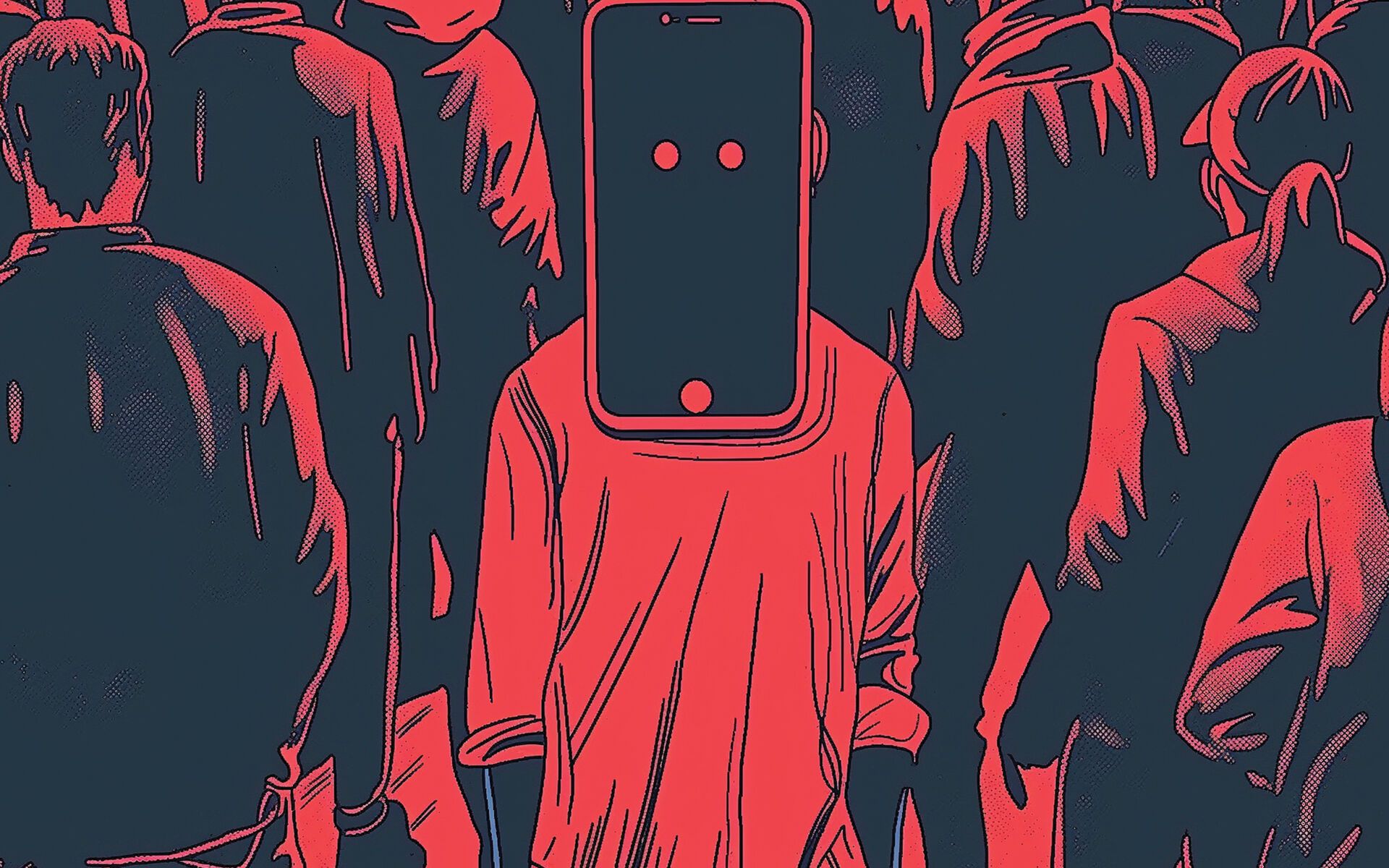Rising Above Cancel Culture: A Call for Compassion and Growth

In This Article
-
In the ever-evolving digital age, cancel culture has emerged as a potent force, influencing how individuals are perceived and treated within society.
-
With its swift judgment, condemnation, and the subsequent exclusion of individuals for perceived wrongs, cancel culture has cast a pervasive shadow on the well-being of those ensnared both within and beyond its reach.
-
Teens who cancel others may do so because they hold strong moral beliefs, which is a positive thing. However, teenage cancel culture allows kids to disregard empathy and compassion in favor of being right.
-
The act of cancelation often involves the removal of individuals from social circles. This isolation, in conjunction with the loss of support networks, can lead to a profound sense of loneliness and despair.
In 2017, a Harris County Assistant District Attorney in Texas became involved in a case of mistaken identity after a woman with the same name posted racist remarks about African American women on Twitter. In the following weeks, Facebook and Twitter users continued to share a series of messages from several months prior, from a user named Courtney Rosen. Twitter and Facebook users linked the tweets to Harris County Assistant District Attorney (ADA) Courtney Rosen, who shares the same name as the original poster. Rosen was subjected to a flood of abuse on social media, prompting her supervisors to investigate the matter, in which a case of mistaken identity was revealed. Her office then published a statement defending her soon after (Barned-Smith, 2017). The user who actually made the derogatory posts subsequently had his or her account suspended, but the damage had already been done to ADA Rosen.
What is Cancel Culture?
Cancel culture is a social phenomenon characterized by the public rejection or withdrawal of support from individuals or entities, often celebrities or public figures, due to perceived objectionable behavior, statements, or beliefs (Vogels, 2021). In the ever-evolving digital age, cancel culture has emerged as a potent force, influencing how individuals are perceived and treated within society. With its swift judgment, condemnation, and the subsequent exclusion of individuals for perceived wrongs, cancel culture has cast a pervasive shadow on the well-being of those ensnared both within and beyond its reach (Vus, 2018).
While it's crucial to acknowledge that cancel culture has played a role in holding abusive individuals in positions of power accountable, we should also take into account its broader impact on society. According to Pew Research Center data on cancel culture, 58 percent of Americans say that calling someone out on social media holds them accountable for their acts, while 38 percent believe it punishes those who do not deserve it. Similar data has found that 1 in 4 people fear losing their jobs over making a mistake, holding opposing political views, or simply going against the grain of the established norms (Vogels, 2021).
Cancel culture has a tendency to oversimplify and stigmatize and has therefore created a landscape where individuals are defined by their worst moments, fostering a climate of fear and apprehension. This scrutiny and fear of being canceled, coupled with the public nature of this phenomenon, have given rise to a host of mental health and social challenges. Individuals are now navigating an era where a single misstep can lead to public censure. The fear of facing public condemnation and the potential ramifications of being canceled permeate the daily lives of those caught within its grasp. Teenagers and adolescents, for example, are extremely vulnerable to the judgments of their peers, so cancellation is particularly harmful to this age group. According to a review of research on media and teenage brain development, teens are especially vulnerable to social influences since the regions of their brains responsible for social elements of life are still forming (Crone & Konjin, 2018). Brain imaging studies have shown that social rejection and cancellation literally hurts as it activates the same areas of the teenage brain that physical pain activates (Kross et al., 2011).
The negative impacts of cancel culture extend to both cancelers and onlookers. Teens who cancel others may do so because they hold strong moral beliefs, which is a positive thing. However, teenage cancel culture allows kids to disregard empathy and compassion in favor of being right. Rather than learning to debate matters on which they differ, cancelers just block those they believe are wrong. Individuals on the sidelines frequently experience anxiety and concern that they will be next, as well as guilt for not sticking up for someone who was abruptly canceled.
“The world is messy…People who do really good stuff have flaws” Former President Barack Obama (2019).
The dynamics behind the rise of cancel culture in the digital age
The emergence of cancel culture in recent years can be attributed to the disruptive effects of the digital age, notably the widespread influence of social media platforms. These platforms provide a speedy and expansive mode of communication, allowing users to express their thoughts and rally support for causes rapidly. The growing visibility of public personalities, spurred by the interconnectedness of the online world, has raised expectations of accountability, with previous actions or words coming under closer examination. The empowering of marginalized voices via digital platforms has played an important role in drawing attention to injustices; but, it has also contributed to the quick and, at times, severe consequences of cancel culture.
Polarization and ideological divisions play an important role in influencing cancel culture in contemporary discourse. The politicized character of societal issues may lead to the use of cancellation as a tactic to silence dissent or hold individuals accountable for breaking from established norms in their communities. The lack of complexity and context in evaluating acts or remarks is worsened by the constraints of social media platforms, where character limits and fast-paced exchanges can prevent a thorough understanding of a given incident.
Cancel culture, motivated in part by a genuine desire for social reform, seeks to hold individuals accountable for perceived detrimental actions or views. Advocates claim that accountability is critical to building a more inclusive and just society (Vus, 2018). Yet, the challenge lies in striking a balance between holding individuals accountable and providing opportunities for personal growth and repentance. As cancel culture continues to evolve, ongoing debates center around finding this delicate equilibrium while addressing the complexities inherent in swift online judgments.
Cancel Culture in History
Cancel culture, while appearing to be a creation of the digital age, has historical precedents in which individuals faced criticism for questioning conventional norms, fell victim to rumors and gossip, and were isolated for new ideas and approaches. As such, today’s cancel culture, with its immediate and frequently severe penalties for perceived breaches, is a modern embodiment of a long-standing trend.
Socrates, the prominent ancient Greek philosopher, faced a sort of societal censure that is similar to features of today's cancel culture. His "cancellation" took place within the complex dynamics of political and cultural life in ancient Athens. Socrates was known for challenging existing cultural and religious assumptions which earned him both admiration and hatred. Accusations of corrupting youth arose as a result of his support for critical thinking and questioning traditional conventions. Socrates underwent a court trial, and despite his passionate defense and pledge of allegiance to the gods of Athens, he was convicted (Nash, 2022).
Another example can be seen in the life of Aisha, the wife of Prophet Muhammad (peace be upon him) when she fell victim to unjust social condemnation. The event revolved around an incident, in which innocent circumstances gave rise to malicious rumors of impropriety between Aisha and another male companion. The subsequent gossip and speculation harmed both her individual and broader societal harmony and peace. This incident shares parallels with modern cancel culture, where individuals face severe consequences based on unfounded rumors or false narratives. Aisha's exoneration through Quranic revelation illustrates the dangers of unchecked allegations and the potential for deceptive narratives to harm others, underlining the ongoing importance of discernment and justice in the face of society judgment (Haylamaz, 2016).
As displayed by both of these historic examples, the act of cancelation often involves the removal of individuals from social circles. This isolation, in conjunction with the loss of support networks, can lead to a profound sense of loneliness and despair. Be it public or private, this then isolates individuals from their communities, leaving them grappling with a sense of rejection and social alienation.
But, what about examples of times where people were in the wrong, admitted their mistakes, yet were unable to find a path to redemption? Comedian Kevin Hart for example, withdrew from hosting the 2019 Oscars after past tweets containing homophobic remarks resurfaced. While the tweets were offensive, some argued that the context of the tweets being comedic in nature, having occurred when Hart was much younger, and that Hart had addressed his error and apologized for the remarks in the past should have been considered before the swift cancellation. Chrissy Teigen, similarly, was called out on social media for bullying comments she made in the past. Teigen was remorseful, she apologized, and took time for personal reflection and growth, yet was withheld from the possibility of public redemption for quite a long time. If this is happening to celebrities openly, we can be sure it is happening to all types of people on a regular basis. Imagine what it would be like to make a mistake and have no path to redemption. So, the question then becomes, how do experts suggest we appropriately hold people accountable in a responsible manner when they make a mistake?
Calling In Rather Than Calling Out
In a 2020 study by the British Journal of Social Psychology, researchers found that pedagogical and therapeutic experts recommend the following steps for holding people accountable without resorting to public shame and cancellation:
- Clearly define the specifics of the situation and explain why they are troublesome using factual evidence.
- Communicate directly with the individual or entity concerned whenever possible.
- Provide an opportunity for the opposing party to voice their viewpoint. If an apology is delivered and a plan for resolution is agreed upon, there is the possibility of going forward when all parties are prepared.
- The focus should stay on resolving the current issue without excessive escalation.
Adopting a "calling in" approach, as opposed to "calling out," is useful in holding individuals with damaging attitudes accountable while avoiding cancel culture. Experts emphasize the significance of convincing people to accept responsibility for their acts rather than publicly blaming them. They contend that gently illustrating the harmful consequences of their words and actions, with compassion and sympathy, frequently leads to individuals acknowledging and accepting responsibility for themselves. However, if canceling becomes a public display of virtue signaling or control, the person being canceled may refuse accountability, impeding positive growth and development (Woods & Ruscher, 2020).
In recognizing the profound impact of cancel culture has on society, a compelling need emerges for a transformative shift in perspective—a shift grounded in hope, forgiveness, and redemption.
Seeking Guidance Through Faith
“But indeed, I am the Perpetual Forgiver of whoever repents and believes and does righteousness and then continues in guidance” (Qur’an 20:82).
In the face of cancel culture's impact on society, Islamic teachings, alongside Christian and Jewish traditions, provide a resilient foundation rooted in hope, resilience, and the transformative power of faith. Central to these Abrahamic faiths is the concept of forgiveness, with Islam emphasizing tawbah—a pathway for seeking forgiveness, learning from mistakes, and embracing personal growth (Gulen, 2006). This aligns with the teachings of Christianity that underscore the role of forgiveness, compassion, and the possibility of redemption through repentance, as well as Jewish traditions that focus on teshuvah, emphasizing repentance and positive transformation (Eichler Berkun, 2003).
Prophet Muhammad's (peace be upon him) statement, “Each of you is the mirror of his brother, so if he sees a fault in him, he should wipe it away from him” (Tirmidhi), resonates with the Christian emphasis on supporting and forgiving one another, bearing one another's burdens, as well as the Jewish emphasis on communal responsibility and mutual support.
This paradigm shift in thinking and approaching the mistakes of others is not a distant ideal but a tangible call to action—an invitation to challenge the perfectionist narrative often propagated by cancel culture. It involves recognizing the human capacity for mistakes, acknowledging them not as endpoints but as opportunities for profound growth. The above-mentioned teachings all highlight the importance of fostering supportive communities that uplift individuals in their journey, providing a counterbalance to the isolating nature of cancel culture. Rather than exclusion and judgment, encouragement and the creation of supportive communities that uplift individuals in their journey should take central importance. The shared principles of forgiveness, redemption, hope, and resilience found in these religious traditions collectively offer a wisdom that transcends religious boundaries, presenting a holistic approach to countering the adversarial aspects of cancel culture and fostering a more compassionate and understanding societal discourse.
Bibliography
- Barned-Smith, St. John. “Local Prosecutor Wrongfully Blamed for Racist Twitter Posts, Superiors Say.” Houston Chronicle, 2017. https://www.chron.com/news/houston-texas/article/Local-prosecutor-caught-up-in-social-media-10981357.php.
- Crone, Eveline A., and Elly A. Konijn. “Media Use and Brain Development during Adolescence.”Nature Communications 9, no. 1 (February 21, 2018). https://doi.org/10.1038/s41467-018-03126-x.
- Eichler Berkun, Lauren. “Torah and Teshuvah.” Jewish Theological Seminary, 2003. https://www.jtsa.edu/torah/torah-and-teshuvah/.
- Gülen, Fethullah. “Tawba (Repentance), Inaba (Sincere Penitence), and AWBA (Turning to God in Contrition).” Fethullah Gülen, June 14, 2006. http://fgulen.com/en/fethullah-gulens-works/key-concepts-in-the-practice-of-sufism-1/tawba-repentance-inaba-sincere-penitence-and-awba-turning-to-god-in-contrition.
- Haylamaz, Resit.Aisha: The wife, the companion, the scholar. New Jersey: Tughra Books, 2016.
- Kross, Ethan, Marc G. Berman, Walter Mischel, Edward E. Smith, and Tor D. Wager. “Social Rejection Shares Somatosensory Representations with Physical Pain.”Proceedings of the National Academy of Sciences 108, no. 15 (March 28, 2011): 6270–75. https://doi.org/10.1073/pnas.1102693108.
- Nash, Marc. “Classic Case of Cancel Culture.”Index on Censorship 51, no. 1 (March 23, 2022): 160–160. https://doi.org/10.1177/03064220221085926.
- Rueb, Emily S., and Derrick Bryson Taylor. “Obama on Call-out Culture: ‘That’s Not Activism.’” The New York Times, October 31, 2019. https://www.nytimes.com/2019/10/31/us/politics/obama-woke-cancel-culture.html.
- Vogels, Emily A. “Americans and ‘Cancel Culture’: Where Some See Calls for Accountability, Others See Censorship, Punishment.” Pew Research Center: Internet, Science & Tech, May 19, 2021. https://www.pewresearch.org/internet/2021/05/19/americans-and-cancel-culture-where-some-see-calls-for-accountability-others-see-censorship-punishment/.
- Vus, Viktor. “Mental Health: Global Challenges Journal - 2018.”Mental Health: global challenges Journal, November 14, 2018. https://doi.org/10.32437/mhgcj-2018.
- Woods, Freya, and Janet Ruscher. “‘calling-out’ vs. ‘Calling-in’ Prejudice: Confrontation Style Affects Inferred Motive and Expected Outcomes.” The British journal of social psychology, 2020. https://pubmed.ncbi.nlm.nih.gov/32633003/.









